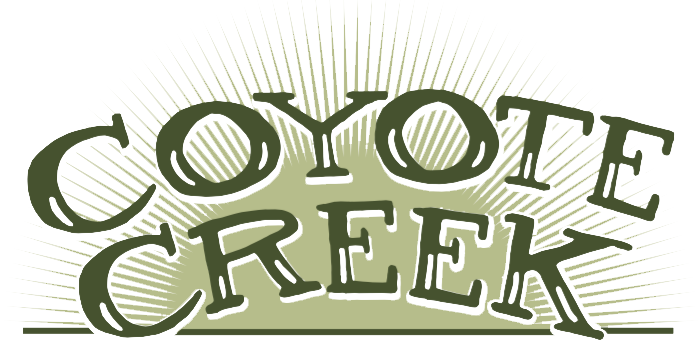Organic 101
What’s the difference between organic and other labels like “Natural?” While “organic” is a label which has strict federal regulations regarding its use, there are no such requirements for the term, “natural.” Products labelled as organic must be made without the use of synthetic fertilizers, pesticides, genetic modification, or irradiation. Special consideration is paid to issues like crop rotation and soil development. There are no such limitations or restrictions placed on products labelled as “natural.” In short, when you buy a product that carries the USDA organic seal, you know what you’re getting. With a “natural” product, your guess is as good as any.
WHAT’S THE DIFFERENCE BETWEEN A FEED THAT’S CERTIFIED ORGANIC AND ONE THAT’S GMO-FREE? They are most definitely not the same thing. While all organic feed is GMO-free, not all GMO-free feed is organic. A GMO-free feed that is not certified organic will contain ingredients produced with synthetic fertilizers and pesticides. The same care given to sustainable soil development, water resource management, and wildlife preservation in organic agriculture is absent in conventional agriculture. While GMO is an important element to the organic certification, it is a part of a holistic practice of agriculture, not the entirety of it.
WHY SHOULD I FEED MY ANIMALS ORGANIC FEED FROM COYOTE CREEK ORGANIC FEED MILL? First of all, the certified organic ingredients we use are of the highest quality and nutritional value. Our feeds are milled fresh and therefore have the highest nutritional content. Each feed is specifically formulated for the nutritional needs of the animal to ensure optimum health, growth, and performance.
WHAT ARE THE ENVIRONMENTAL BENEFITS OF CHOOSING AN ORGANIC ANIMAL FEED FROM COYOTE CREEK ORGANIC FEED MILL? Farming grains is ecologically intensive. In conventional agriculture, grain farming requires massive amounts of chemical inputs to provide the plant with all the nutrients it needs to provide a harvestable crop. While a high-energy grain is created by this process, the by-products are myriad. Air, soil, and water pollution along with harmful effects on wildlife and humans are among the uncounted costs of cheap food provided with petrochemical inputs.
Standing in stark contrast to the conventional agricultural model, organic farms work in concert with nature to develop self-sustaining systems which produce a clean, high-quality crop for animal and human consumption. As soil health is of the utmost importance, techniques like composting, crop rotation, and smart water use are employed. In conventional agriculture, the soil is merely the substrate which holds a growing plant while. In organic agriculture, the soil is the “mother” which nourishes all that spring from it.
By purchasing certified organic feed from Coyote Creek Organic Feed Mill, you’re working alongside countless unsung heroes to reverse the ecological damage that decades of wasteful and toxic practices have wreaked on our Earth, and choosing an intelligent, responsible way forward.
WHAT ARE THE HEALTH BENEFITS OF CHOOSING AN ORGANIC ANIMAL FEED FROM COYOTE CREEK ORGANIC FEED MILL? The old adage rings true: you are what you eat. To extend that further, you are what you eat eats. By feeding your livestock a certified organic animal feed from Coyote Creek, you prevent the introduction of harmful pesticide and fertilizer residues GMOs into your food source.
HOW WILL MY CHOICE TO PURCHASE ORGANIC ANIMAL FEED FROM COYOTE CREEK ORGANIC FEED MILL AFFECT FARMERS AND THE LOCAL ECONOMY? Ninety-five percent of the ingredients used in Coyote Creek’s feed formulations come from Texas farmers. This means that your choice to purchase our feed directly supports American farmers and further works to strengthen rural farming communities. Rural populations are on the decline and one way to counter that is to ensure a stable and secure rural economy.
